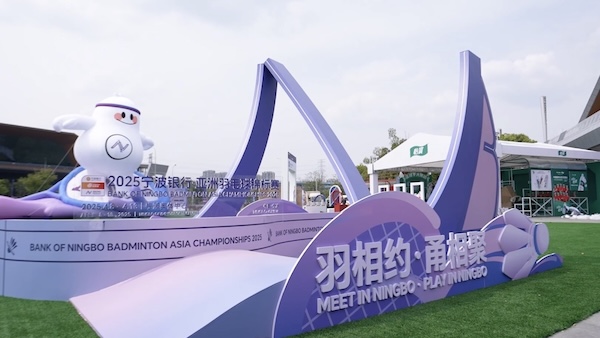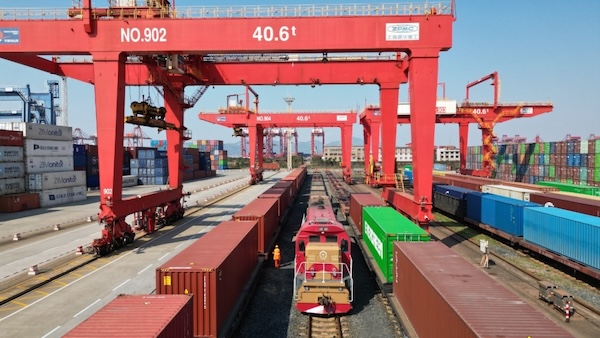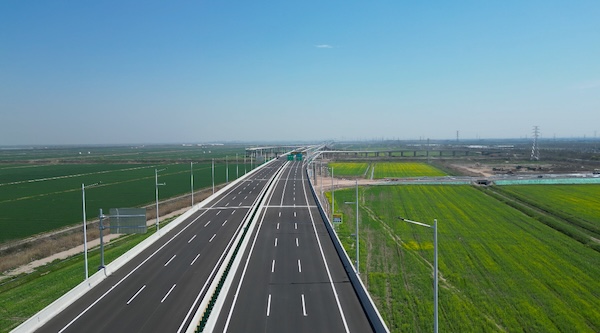Ningbo sees notable industrial growth, upgrading
For the second year running, Ningbo in East China's Zhejiang province has won recognition from the State Council for its stable industrial growth and notable industrial transformation and upgrading results.
Official statistics show that nearly 8,000 enterprises above designated size from the city have embraced automation or smart transformation. One such example is Consinee Group, a Ningbo-based company focused on the production and sales of high-quality yarns and fabrics.
The company has collaborated with Siemens to build a smart plant, which is expected to help the latter improve production efficiency by 50 percent and shorten the delivery cycle by half.
Ningbo is now home to 70 smart factories at municipal level or above, among which 33 are rated as provincial-level. Twenty projects from the city have also been designated as national models for the application of technologies including industrial internet and big data.
In addition to digital upgrading, innovation and brand building are two other key factors bolstering the city's industrial growth.
Ningbo fashion brand Youngor has established a textile material research institute to improve its innovation capabilities. The research body develops more than 300 new products every year, with 70 percent reaching the domestic advanced level, according to Wang Qingmiao, head of the textile material research institute.
The city has also been actively promoting brand building and the compilation of standards.
Its molding and stationery sectors have been included in a national program to promote regional brand building for industrial clusters. In the past three years, the city has presided over or participated in the formulation (revision) of 391 international and national standards.
Efforts to phase out backward capacity have also underpinned the city's industrial development.
A total of 745 businesses that had backward capacity were rectified or shut down in Ningbo in past three years, freeing more than 40,000 mu (2,666.7 hectares) of land.

 Ningbo seabird project seeks international volunteers
Ningbo seabird project seeks international volunteers  Jakub's journey: From shipyard to sea
Jakub's journey: From shipyard to sea  Badminton Asia COO applauds Ningbo
Badminton Asia COO applauds Ningbo 


